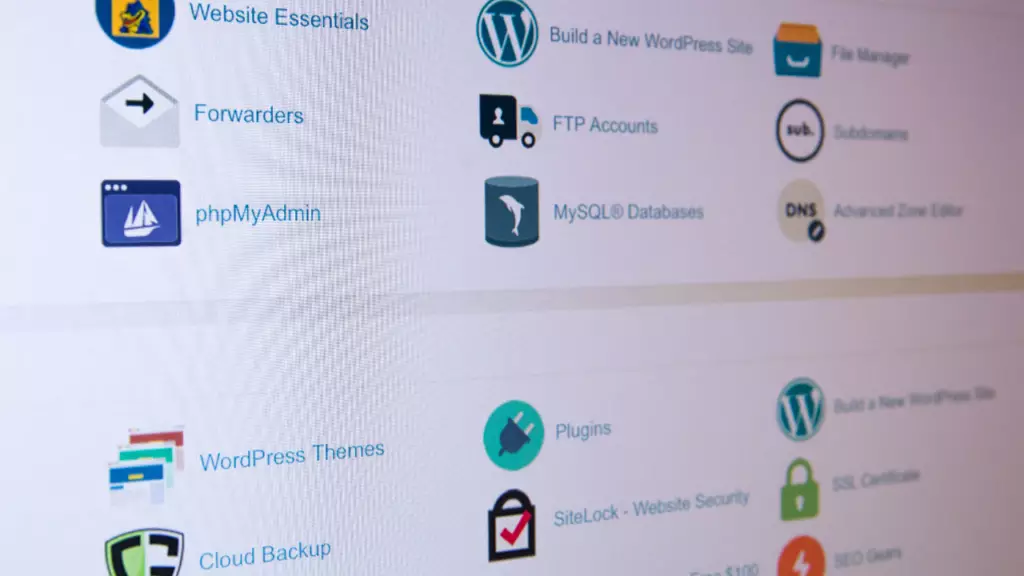Finding the best hosting for ecommerce site is crucial for the success of your online business. The right hosting provider can ensure that your site is fast, secure, and available to customers at all times, which is essential for building trust and generating sales. With so many hosting options available, it can be challenging to know where to start.
In this article, we aim to make the task of finding the best hosting plan for an ecommerce site easier by highlighting the top 10 options available. We have selected 5 VPS services and 5 shared hosting options that offer a range of features and pricing structures to suit the needs of different ecommerce businesses. Our selection criteria includes factors such as features, pricing, performance, and customer support, to ensure that the hosting options we recommend are well-rounded and suitable for a wide range of ecommerce businesses.
Whether you are just starting out with your ecommerce business or looking to upgrade your current web hosting plan, this list of the best web hosting options for your ecommerce website will provide you with a range of options to consider. We hope that by reading this article, you will feel more informed and equipped to make the best decision for your business.
Why is a good web hosting important for an ecommerce store?

A good hosting service is essential for the success of an ecommerce store. Because website speed is important for seo, it should ensures that the store loads quickly and performs smoothly, which can improve the user experience and increase organic traffic and sales. In addition, the best ecommerce hosting provider will offer robust security measures to protect sensitive customer information and prevent cyber attacks.
It is also important for an ecommerce store to be always available to customers, so a good hosting plan will have a high uptime rate to ensure that the store is online and accessible at all times. As your commerce business grows, it may be necessary to scale the ecommerce platform resources to meet the increased demand. A good hosting platform will offer flexible and scalable solutions to support your commerce business as it grows.
Customer support is also an important factor to consider when choosing an ecommerce hosting provider, as you may need help with technical issues or questions about your commerce hosting account. Overall, a good web hosting is crucial for the performance, security, and success of your e commerce store. By choosing a reliable and well-rounded hosting service, you can ensure that your store has the resources and support it needs to thrive.
In summary, a good hosting provider will offer fast loading times, good uptime, robust security measures, scalability, and reliable customer support. These features are essential for the performance, security, and success of an e commerce store, and are important to consider when choosing an ecommerce web hosting platform.
What are the different types of web hosting available?
There are several different types of web hosting available for websites, including:
- Shared hosting: Shared hosting plan is a type of hosting where multiple websites share the same server and resources. This is a cost-effective option for small to medium-sized websites or those with less complex hosting needs.
- Virtual private server (VPS) hosting: VPS hosting is a type of hosting where each website has its own virtual server with dedicated resources. This is a good option for businesses that experience sudden spikes in traffic or have specific e commerce hosting requirements.
- Dedicated hosting: Dedicated server hosting is a type of hosting where a website has its own physical server and resources. This is a good option for large websites or those with very high traffic volumes.
- Cloud hosting: Cloud hosting is a type of web hosting that uses a network of servers to host websites. This allows for greater scalability and flexibility, as resources can be easily added or removed as needed.
- Managed hosting: Managed hosting is a type of hosting where the web host takes care of all the technical aspects of the ecommerce platform, such as security, updates, and maintenance. This is a good option for your online store if you do not have the technical expertise to manage your own ecommerce host.
Ultimately, the best type of ecommerce web hosting for a website will depend on the specific needs and goals of the business. By considering factors such as traffic volume, budget, and web hosting requirements, businesses can choose the best ecommerce hosting type that best fits their needs.
What are the features to look for in a good hosting provider?
When choosing a hosting provider for an ecommerce website, there are several key features to consider:
- Performance: Look for a hosting provider that offers fast loading times and good uptime to ensure that your site is always available to customers.
- Security: Ecommerce sites handle sensitive customer data, so it is important to choose a hosting provider that offers robust security measures, such as SSL certificates and frequent backups.
- Scalability: As your ecommerce business grows, you may need to scale your web hosting resources to meet the increased demand. Choose a hosting provider that offers flexible and scalable solutions to support your business as it grows.
- Ecommerce support: Look for a hosting provider that offers specific support for ecommerce sites, such as integration with popular ecommerce platforms and support for payment gateways.
- Customer support: It is important to choose a hosting provider with good customer support, as you may need help with technical issues or have questions about your hosting account.
- Storage and bandwidth: Ecommerce sites often require a lot of storage and bandwidth to store product images, handle customer orders, and process payments. Choose a hosting provider that offers sufficient storage and bandwidth to meet the needs of your business.
- Marketing and SEO tools: Some hosting providers offer marketing and SEO tools to help ecommerce businesses improve their online presence and reach. These tools can include email marketing, social media integration, and search engine optimization tools.
- Mobile optimization: More and more customers are using mobile devices to shop online, so it is important to choose a hosting provider that offers mobile optimization for your ecommerce site. This can include responsive design and mobile-specific features to improve the user experience on mobile devices.
- Integration with third-party tools: Ecommerce sites often rely on third-party tools and services, such as payment gateways, shipping providers, and customer relationship management systems. Choose a hosting provider that offers easy integration with these tools to make it easier to manage your business.
By considering these additional features, you can ensure that you choose a hosting provider that will meet the specific needs and goals of your ecommerce business.
Best Hosting for Ecommerce Site: Top 5 VPS Picks

Virtual private server (VPS) hosting is a popular option for ecommerce businesses, as it offers a higher level of resources and control compared to shared hosting. With VPS hosting, you get your own virtual server with dedicated resources, which can be important for businesses that experience sudden spikes in traffic or have specific hosting requirements. In this section, we will highlight 5 of the best VPS hosting options for ecommerce sites, including features, pricing, pros, and cons. Whether you are just starting out with your ecommerce business or looking to upgrade your current hosting solution, these VPS options are worth considering.
DigitalOcean
- DigitalOcean is a cloud-based VPS hosting provider that offers a range of features and pricing options to suit the needs of ecommerce businesses.
- Some of the features offered by DigitalOcean include a simple control panel, a wide range of operating systems and applications, and the ability to scale resources as needed.
- Pricing for DigitalOcean starts at $5 per month for a basic plan, with options to upgrade to more powerful plans as needed.
- One of the pros of using DigitalOcean for ecommerce hosting is the ability to easily scale resources as needed, which can be important for businesses that experience sudden spikes in traffic.
- A potential con of using DigitalOcean is that it does not offer as many advanced features as some other VPS hosting options, such as managed hosting services or dedicated IP addresses.
Use my link for a free 200$ sign up bonus.
Linode
- Linode is another cloud-based VPS hosting provider that offers a range of features and pricing options for ecommerce businesses.
- Some of the features offered by Linode include a simple control panel, a wide range of operating systems and applications, and the ability to scale resources as needed.
- Pricing for Linode starts at $5 per month for a basic plan, with options to upgrade to more powerful plans as needed.
- One of the pros of using Linode for ecommerce hosting is the wide range of applications and operating systems that are supported, which can make it easy to set up and run an ecommerce site.
- A potential con of using Linode is that it may not be as user-friendly as some other VPS hosting options, which could make it more difficult for beginners to set up and manage their ecommerce site.
Vultr
- Vultr is a cloud-based VPS hosting provider that offers a range of features and pricing options for ecommerce businesses.
- Some of the features offered by Vultr include a simple control panel, a wide range of operating systems and applications, and the ability to scale resources as needed.
- Pricing for Vultr starts at $2.50 per month for a basic plan, with options to upgrade to more powerful plans as needed.
- One of the pros of using Vultr for ecommerce hosting is the low pricing, which can make it a cost-effective option for businesses on a budget.
- A potential con of using Vultr is that it may not be as well-known as some other VPS hosting providers, which could be a concern for businesses looking for a more established and reliable option.
AWS
- AWS, or Amazon Web Services, is a cloud-based VPS hosting provider that offers a range of features and pricing options for ecommerce businesses.
- Some of the features offered by AWS include a wide range of applications and operating systems, the ability to scale resources as needed, and a robust control panel.
- Pricing for AWS varies depending on the specific resources and features that are needed, with options to pay for resources on a pay-as-you-go basis or to purchase a long-term plan.
- One of the pros of using AWS for ecommerce hosting is the ability to scale resources as needed, which can be important for businesses that experience sudden spikes in traffic.
- A potential con of using AWS is that it can be more expensive than some other VPS hosting options, especially for businesses that require a lot of resources.
Google Cloud
- Google Cloud is a cloud-based VPS hosting provider that offers a range of features and pricing options for ecommerce businesses.
- Some of the features offered by Google Cloud include a wide range of applications and operating systems, the ability to scale resources as needed, and a robust control panel.
- Pricing for Google Cloud varies depending on the specific resources and features that are needed, with options to pay for resources on a pay-as-you-go basis or to purchase a long-term plan.
- One of the pros of using Google Cloud for ecommerce hosting is the reliability and security of the platform, which can be important for businesses handling sensitive customer data.
- A potential con of using Google Cloud is that it may not be as user-friendly as some other VPS hosting options, which could make it more difficult for beginners to set up and manage their ecommerce site.
VPS hosting is a great option for ecommerce businesses that need a higher level of resources and control than what is offered by shared hosting. The 5 VPS hosting options we have highlighted in this section, including DigitalOcean, Linode, Vultr, AWS, and Google Cloud, offer a range of features and pricing structures to suit the needs of different ecommerce businesses. When choosing a VPS hosting provider, it is important to consider factors such as features, pricing, performance, and customer support to ensure that you are getting the best value for your business. By carefully evaluating your needs and budget, you can choose the VPS hosting option that will best support the success of your online store.
Best Hosting for Ecommerce Site: Top 5 Shared Hosting Picks

Shared hosting is a popular and cost-effective option for ecommerce businesses, as it allows multiple websites to share the same server and resources. While shared hosting may not offer the same level of resources and control as VPS hosting, it can be a good choice for small to medium-sized businesses or those with less complex hosting needs. In this section, we will highlight 5 of the best shared hosting options for ecommerce sites, including features, pricing, pros, and cons. Whether you are just starting out with your ecommerce business or looking to upgrade your current hosting solution, these shared hosting options are worth considering.
Bluehost
- Bluehost is a popular shared hosting provider that offers a range of features and pricing options for ecommerce businesses.
- Some of the features offered by Bluehost include a simple control panel, a wide range of applications and operating systems, and the ability to easily scale resources as needed.
- Pricing for Bluehost starts at $2.95 per month for a basic plan, with options to upgrade to more powerful plans as needed.
- One of the pros of using Bluehost for ecommerce hosting is the wide range of applications and operating systems that are supported, which can make it easy to set up and run an ecommerce site.
- A potential con of using Bluehost is that it may not offer as many advanced features as some other shared hosting options, such as dedicated IP addresses or advanced security measures.
SiteGround
- SiteGround is a shared hosting provider that offers a range of features and pricing options for ecommerce businesses.
- Some of the features offered by SiteGround include a simple control panel, a wide range of applications and operating systems, and the ability to easily scale resources as needed.
- Pricing for SiteGround starts at $6.99 per month for a basic plan, with options to upgrade to more powerful plans as needed.
- One of the pros of using SiteGround for ecommerce hosting is the excellent customer support, which can be helpful for businesses that are new to ecommerce or have technical issues.
- A potential con of using SiteGround is that it may be more expensive than some other shared hosting options, which could be a concern for businesses on a tight budget.
A2 Hosting
- A2 Hosting is a shared hosting provider that offers a range of features and pricing options for ecommerce businesses.
- Some of the features offered by A2 Hosting include a simple control panel, a wide range of applications and operating systems, and the ability to easily scale resources as needed.
- Pricing for A2 Hosting starts at $2.99 per month for a basic plan, with options to upgrade to more powerful plans as needed.
- One of the pros of using A2 Hosting for ecommerce hosting is the wide range of applications and operating systems that are supported, which can make it easy to set up and run an ecommerce site.
- A potential con of using A2 Hosting is that it may not offer as many advanced features as some other shared hosting options, such as dedicated IP addresses or advanced security measures.
HostGator
- HostGator is a shared hosting provider that offers a range of features and pricing options for ecommerce businesses.
- Some of the features offered by HostGator include a simple control panel, a wide range of applications and operating systems, and the ability to easily scale resources as needed.
- Pricing for HostGator starts at $2.75 per month for a basic plan, with options to upgrade to more powerful plans as needed.
- One of the pros of using HostGator for ecommerce hosting is the low pricing, which can make it a cost-effective option for businesses on a budget.
- A potential con of using HostGator is that it may not offer as many advanced features as some other shared hosting options, such as dedicated IP addresses or advanced security measures.
InMotion Hosting
- InMotion Hosting is a shared hosting provider that offers a range of features and pricing options for ecommerce businesses.
- Some of the features offered by InMotion Hosting include a simple control panel, a wide range of applications and operating systems, and the ability to easily scale resources as needed.
- Pricing for InMotion Hosting starts at $6.39 per month for a basic plan, with options to upgrade to more powerful plans as needed.
- One of the pros of using InMotion Hosting for ecommerce hosting is the excellent customer support, which can be helpful for businesses that are new to ecommerce or have technical issues.
- A potential con of using InMotion Hosting is that it may be more expensive than some other shared hosting options, which could be a concern for businesses on a tight budget.
Shared hosting is a cost-effective and suitable option for ecommerce businesses that have less complex hosting needs or are on a tight budget. The 5 shared hosting options we have highlighted in this section, including Bluehost, SiteGround, A2 Hosting, HostGator, and InMotion Hosting, offer a range of features and pricing structures to suit the needs of different ecommerce businesses. When choosing a shared hosting provider, it is important to consider factors such as features, pricing, performance, and customer support to ensure that you are getting the best value for your business. By carefully evaluating your needs and budget, you can choose the shared hosting option that will best support the success of your online store.
The hassle-free solution for setting up and running your online store

Hosted ecommerce platforms are online platforms that provide everything you need to create and run an ecommerce store, including hosting, design, payment processing, and other features. Some popular hosted ecommerce platforms include Shopify, BigCommerce, and WooCommerce.
One of the main advantages of using a hosted ecommerce platform is that it takes care of all the technical aspects of setting up and running an online store. This can be a good option for businesses that do not have the technical expertise or resources to set up and manage their own hosting and ecommerce infrastructure. Hosted ecommerce platforms also often offer a range of design templates and customization options, making it easy to create a professional-looking online store.
Pricing for hosted ecommerce platforms varies, but many offer a range of plans to suit different budgets and business needs. Some platforms charge a monthly fee, while others charge a percentage of sales or offer a free basic plan with paid add-ons. It is important to carefully consider the pricing and features offered by different platforms to choose the one that best fits the needs of your business.
Overall, hosted ecommerce platforms can be a good option for businesses that want an easy and cost-effective way to set up and run an online store. By choosing the right platform, businesses can focus on growing their business rather than worrying about the technical aspects of running an ecommerce store.
In conclusion
There are many hosting options available for ecommerce businesses, including both VPS and shared hosting. Some of the top 10 hosting options for ecommerce sites include DigitalOcean, Linode, Vultr, AWS, and Google Cloud for VPS hosting, and Bluehost, SiteGround, A2 Hosting, HostGator, and InMotion Hosting for shared hosting.
When choosing a hosting provider for your ecommerce site, it is important to consider factors such as features, pricing, performance, and customer support. Each of the hosting options listed above offers its own unique set of features and pricing structures, so it is important to carefully evaluate your needs and budget to determine the best fit for your business.
Ultimately, the best hosting option for your ecommerce site will depend on your specific needs and goals. By considering the top 10 options listed above, you can make an informed decision and choose the hosting provider that will best support the success of your online business.




